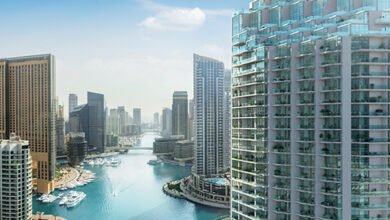GFRP Rebar For Bridge Construction

Bridge construction stands as a testament to human engineering prowess, demanding materials that not only withstand the test of time but also offer enhanced durability and resilience. In this quest for innovation, the utilization of Glass Fiber Reinforced Polymer (GFRP) rebar has emerged as a transformative solution. This article delves into the intricacies of using GFRP rebar for bridge construction, exploring its unique properties and advantages.
Bridge Construction
Bridge construction is a complex and critical aspect of civil engineering, requiring meticulous planning and robust materials to ensure the longevity and safety of the structure. The process involves various stages, from initial design and foundation preparation to the placement of structural elements and final finishing.
The Process of Bridge Construction
Bridge construction typically follows these key steps:
- 2.1 Design and Planning: Engineers develop a comprehensive design considering factors such as traffic load, environmental conditions, and the type of bridge required.
- 2.2 Foundation Preparation: The construction site is prepared, and foundations are laid, providing a stable base for the bridge.
- 2.3 Structural Assembly: Structural components, including columns, beams, and decks, are assembled according to the design specifications.
- 2.4 Reinforcement: Rebar, a crucial element in bridge construction, is used to reinforce concrete and enhance the structural integrity of the bridge.
- 2.5 Concrete Placement: High-strength concrete is poured over the reinforced structure, forming the foundation and superstructure of the bridge.
- 2.6 Finishing: The final touches, such as road surfacing and safety features, are added to complete the construction process.
What is GFRP Rebar?
GFRP rebar, or Glass Fiber Reinforced Polymer rebar, is a revolutionary alternative to traditional steel reinforcement. It consists of high-strength glass fibers embedded in a polymer matrix, providing exceptional tensile strength and corrosion resistance. In bridge construction, GFRP rebar serves as a superior substitute for steel, offering a range of advantages.
GFRP Rebar Advantages for Bridge Construction
- Corrosion Resistance: One of the primary advantages of GFRP rebar is its exceptional resistance to corrosion. Unlike traditional steel reinforcement, GFRP rebar does not rust or corrode when exposed to harsh environmental conditions, such as moisture, saltwater, or aggressive chemicals. This property significantly extends the lifespan of structures, especially in corrosive environments.
- Lightweight Nature: GFRP rebar is significantly lighter than steel, weighing approximately 75% less. This lightweight characteristic facilitates easier handling, transportation, and installation during construction projects. The reduced weight also contributes to lower transportation costs and makes it a practical choice for applications where weight is a critical factor.
- High Strength-to-Weight Ratio: Despite its lightweight nature, GFRP rebar boasts a high strength-to-weight ratio. This means it provides comparable or even superior strength to traditional steel reinforcement while being significantly lighter. This feature contributes to the overall structural integrity and load-bearing capacity of the reinforced concrete.
- Non-Conductive: GFRP rebar is non-conductive, making it an excellent choice for projects where electrical conductivity is a concern. This property reduces the risk of electrochemical corrosion, enhancing the safety and reliability of structures in applications where electrical considerations are critical.1
MRG Composite Rebar
MRG Composite Rebar is a leading GFRP Rebar manufacturers in India and supplies all over the world. We provide the best GFRP Rebar price in India and all over the world. GFRP Rebar is the best option for construction.
Conclusion:
In the realm of bridge construction, the incorporation of GFRP rebar marks a paradigm shift towards sustainable, durable, and innovative solutions. As engineers and builders seek materials that can withstand the challenges posed by diverse environments, GFRP rebar emerges as a key player in shaping the bridges of the future, ensuring longevity and resilience in the face of changing conditions.



